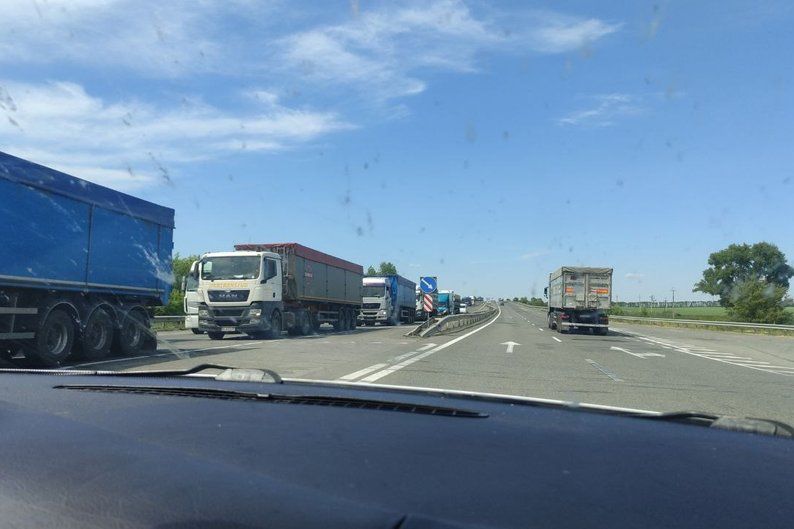Long-haul truckers in Odesa Oblast partially blocked the Kyiv-Odesa highway on May 18, protesting the mobilization law that had come into effect that day. The new law requires specific categories of Ukrainian men aged between 18 and 60 to present military enlistment office registration papers when crossing the border. However, exemptions were made for drivers transporting medical supplies, humanitarian aid, or those involved in international cargo and passenger transport. This mobilization effort comes as Ukraine faces a critical personnel shortage in its military, with the parliament passing a bill updating the rules on mobilization in April. Under martial law, Ukrainian men of conscripting age are not allowed to leave the country as they may be called up for military service.
The Kyiv-Odesa highway, also known as M05 and part of the Trans-European transportation corridor, was blocked near the town of Savran, with only one lane remaining open for traffic. Truckers from Kyrovohrad and Odesa oblasts reportedly gathered to protest the mobilization law. The highway blockade caused disruptions to traffic, but it was later reported that traffic had been restored. In a separate incident in Dnipropetrovsk Oblast, a man stabbed a military enlistment official, causing the official to sustain an arm injury. These incidents highlight the tensions and frustrations surrounding the mobilization efforts and the impact they are having on individuals within Ukraine.
The mobilization law aims to address the personnel shortage in Ukraine’s military as it continues to face security challenges, particularly in the context of ongoing conflict with Russia. The law requires certain categories of men to be prepared for military service and restricts their ability to leave the country during times of martial law. While exemptions exist for certain professions and activities, the implementation of the law has faced resistance from some groups, as seen in the protests by long-haul truckers on the Kyiv-Odesa highway. These protests demonstrate the challenges of balancing national security needs with individual freedoms and rights.
The protests on the Kyiv-Odesa highway and the violent incident in Dnipropetrovsk Oblast underscore the tensions and frustrations surrounding the mobilization law and its enforcement. The need to bolster Ukraine’s military capabilities in the face of ongoing security threats is evident, but the practical implications and impact on individuals must also be carefully considered. As Ukraine navigates these challenges, support for independent journalism and reporting becomes crucial in ensuring transparency and accountability in the country. By joining the fight to support independent journalism in Ukraine, individuals can help shed light on these complex issues and advocate for a more informed and engaged society.
It is important for the international community to remain vigilant and informed about the situation in Ukraine, particularly as the country grapples with security challenges and ongoing conflicts. Support for independent journalism can provide valuable insights and analysis into the complexities of the mobilization efforts and their impact on Ukrainian society. By staying informed and engaged, individuals can contribute to a more informed and empowered public discourse, ultimately strengthening democracy and accountability in Ukraine. The events on the Kyiv-Odesa highway and the violent incident in Dnipropetrovsk Oblast serve as reminders of the importance of upholding democratic values and respecting individual rights even in times of crisis and conflict.


